
Budgetary expenditures for pension scheme declining after pandemic, lowest in the region

The number of people benefiting from the social security scheme has increased significantly in recent years, but on the other hand, budget expenditures in relation to GDP for pension payments are on a downward trend after the pandemic.
Official data from the Ministry of Finance shows that budget spending on the pension scheme reached 7.4 percent of GDP last year, a level similar to 2023 and the lowest level since 2014.
While budget spending on social security as a share of GDP declined, the number of beneficiaries in the scheme increased by 20% between 2014 and 2023.
From around 4.8% of GDP at the beginning of the transition, budgetary spending on the public pension scheme reached 6% of GDP in the early 2000s, to mark a gradual increase after 2010, reaching 7% in 2013 and then peaking at around 8.1% in 2020, when the pandemic increased the pension and temporary benefit bill. The weight has slightly decreased to around 7.4–7.5% of GDP in 2023-2024. (see chart below).
Albania's spending on the pension scheme relative to GDP is much lower than in other Western Balkan countries. Except for Kosovo and Albania, all other countries spend more than 10% of their GDP on pension payments.
Data from the Ministry of Finance shows that Albania has a steady but still moderate increase in social security spending compared to its neighbors. On the one hand, the government has an advantage of greater fiscal sustainability, but on the other hand, low social benefit payments are not favorable for a labor market that is being emptied by emigration and is rapidly aging.
This year Bosnia and Herzegovina (FBiH) implemented the legal indexation formula based on inflation and GDP growth, increasing pensions by 4.49% in 2025.
During this year, Kosovo applied the largest pension increase of 20%.
Montenegro decided that by 2025 no pensioner will receive less than 450 euros per month.
North Macedonia switched from indexation to a fixed supplement, easing low and average pensions.
Serbia is providing the 13th pension by dividing it into equal monthly allowances to maintain purchasing power until the next increase according to the Swiss model.
In Albania, the last indexation (4.1 percent) was in October 2024, while the government has distributed a one-time bonus of 25 percent of the average pension this year./ MONITOR
Latest news


Monika Kryemadhi appears at SPAK dressed in black
2025-05-05 13:24:47


SPAK files another charge against Ajola Xoxa, also accused of concealing income
2025-05-05 12:52:23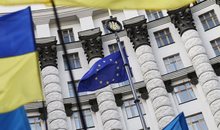
Sanctions and war tribunal on the agenda of EU ministers
2025-05-05 12:29:10
Rama insults and offends Bledjon Nallbatin: How can Democrats vote for a thug?
2025-05-05 12:21:41
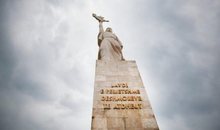
May 5, National Martyrs' Day
2025-05-05 11:50:22
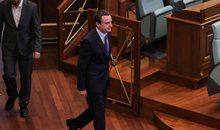
Kurti invites LDK for coalition with LVV
2025-05-05 11:37:27
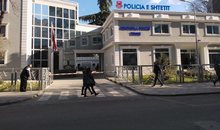
Young man disappears in Tirana
2025-05-05 11:14:39

Facebook campaign: Profiles from Vietnam like "Team Edi Rama" posts
2025-05-05 10:52:24
The Special Court leaves Florenc Çapjan in prison, the testimony is revealed
2025-05-05 10:38:24
Fatal accident in Shkodra
2025-05-05 10:25:30
Gunfight in Laç/ One of the injured in serious condition
2025-05-05 10:19:06





Appears in SPAK Sali Berisha
2025-05-05 09:08:23
Përtej gallatës dhe nofkave, çfarë ofron politika për ekonominë
2025-05-05 08:52:58
A 28-year-old wanted by Spain for drug trafficking is arrested in Vau i Dejës
2025-05-05 08:42:24

Rain is back! Weather forecast for today
2025-05-05 08:20:40
Posta e mëngjesit/ Me 2 rreshta: Çfarë pati rëndësi dje në Shqipëri
2025-05-05 08:01:22

Makina përplas motorin në aksin Shkodër-Lezhë, plagosen dy adoleshentë
2025-05-04 21:29:50


Video/ The moment when the police forcibly drag away the DP candidate in Fier
2025-05-04 20:47:17
Berisha: We ask for 100 days from Albanian citizens to transform Albania
2025-05-04 20:38:25



"In the owl sleeps a vigilant fate..."/ Chris LaCivita openly criticizes Rama
2025-05-04 19:09:01
UEFA fines Real Madrid
2025-05-04 18:45:40

Habit Putin: I hope there will be no need to use nuclear weapons in Ukraine
2025-05-04 17:55:59
A 37-year-old man is found dead in the Port of Shëngjin
2025-05-04 17:32:32
Serious accident in Croatia, 2 dead and 31 injured
2025-05-04 17:17:05
Useful during the summer, here are the vitamins you should take
2025-05-04 17:03:11

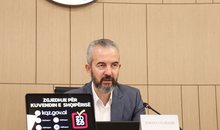



Forza Italia MP calls on Albanians: Vote for democracy with Europe in mind
2025-05-04 15:18:00
Eurostat: Albanian women rank first in the region for coding programs
2025-05-04 15:01:35











Video/ Berisha is given a grand reception in Tropoja
2025-05-04 11:27:26
'Great Albania' tops the poll of the popular social media site
2025-05-04 11:08:20


Collision with truck driver, brother of candidate for deputy in Korça arrested
2025-05-04 10:04:30
Analysis of the May 11 elections: Facade campaign with little substance
2025-05-04 09:43:53
Art in mourning! Renowned actor and director Eduart Çala passes away
2025-05-04 09:13:46
Yesterday's gunfight in Laç, young man dies overnight in hospital
2025-05-04 08:54:45
Astrological forecast, May 4, 2025
2025-05-04 08:37:03

Morning Post/ In 2 lines: What mattered yesterday in Albania
2025-05-04 07:59:41




Vlora reserves a grand welcome for Sali Berisha
2025-05-03 20:38:35
Couples who sleep in different beds are happier, here's why
2025-05-03 20:20:24


Albanian tries to open plane door during Geneva-Pristina flight
2025-05-03 19:20:19


Noka meeting in Tirana: Vote for PD-ASHM, so that we repopulate Albania
2025-05-03 18:31:03


The mineral massif in Klos collapses, taking a quarry with it
2025-05-03 17:37:21
5 people injured in Laç, crime weapon found
2025-05-03 17:20:43

Two of the injured in Laç in serious condition
2025-05-03 16:40:30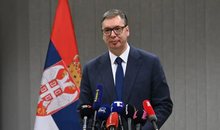
Vučić cuts short US visit, hospitalized in Serbia
2025-05-03 16:22:30
DP-ASHM/Memelli Program: Feasible, economic dignity for every individual
2025-05-03 16:02:07
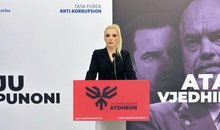

Details/ Shooting in Laç, names of 5 injured
2025-05-03 15:09:52

Gunfire in Laç, 4 people injured
2025-05-03 14:46:56
